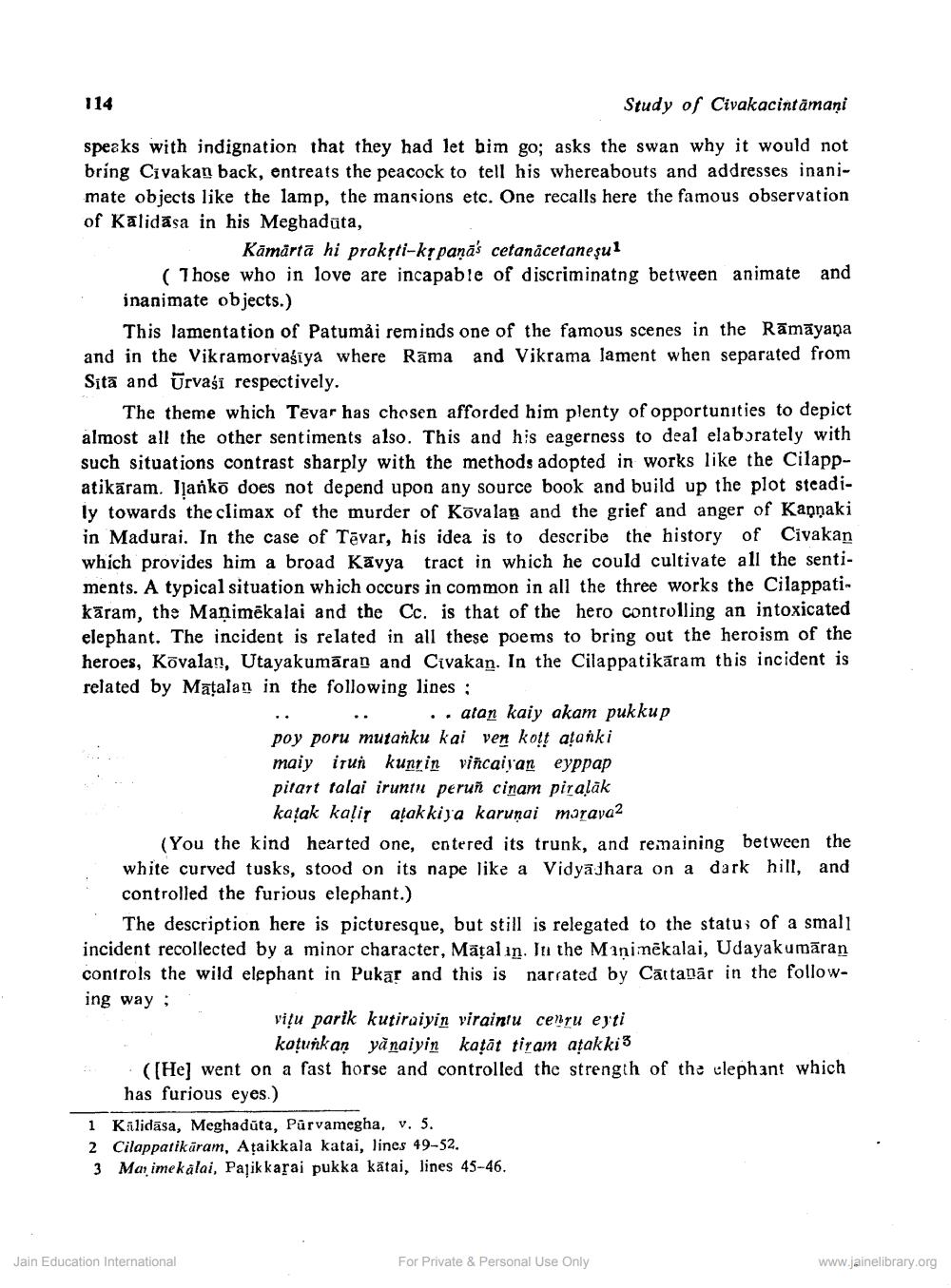________________
114
Study of Civakacintamani
speaks with indignation that they had let bim go; asks the swan why it would not bring Civakan back, entreats the peacock to tell his whereabouts and addresses inanimate objects like the lamp, the mansions etc. One recalls here the famous observation of Kalidasa in his Meghadüta,
Kāmärta hi prakti-kr panās cetanacetaneşul ( Those who in love are incapable of discriminatng between animate and inanimate objects.)
This lamentation of Patumải reminds one of the famous scenes in the Rāmāyaṇa and in the Vikramorvasiya where Rāma and Vikrama lament when separated from Sitā and Urvasi respectively.
The theme which Tevar has chosen afforded him plenty of opportunities to depict almost all the other sentiments also. This and his eagerness to deal elaborately with such situations contrast sharply with the methods adopted in works like the Cilappatikāram. Jļanko does not depend upon any source book and build up the plot steadily towards the climax of the murder of Kõvalan and the grief and anger of Kasnaki in Madurai. In the case of Tēvar, his idea is to describe the history of Civakan which provides him a broad Kāvya tract in which he could cultivate all the sentiments. A typical situation which occurs in common in all the three works the Cilappatikāram, the Manimēkalai and the Cc. is that of the hero controlling an intoxicated elephant. The incident is related in all these poems to bring out the heroism of the heroes, Kõvalan, Utayakumāran and Civakan. In the Cilappatikāram this incident is related by Matalan in the following lines :
.. atan kaiy akam pukkup poy poru mutanku kai ven kott ațanki maiy iTun kunrin viñcaiyan eyppap pitart falai iruntu perun cinam piralāk
kațak kaļir ațak kiya karuņai maraya2 (You the kind hearted one, entered its trunk, and remaining between the white curved tusks, stood on its nape like a Vidyadhara on a dark hill, and controlled the furious elephant.)
The description here is picturesque, but still is relegated to the status of a small incident recollected by a minor character, Māțal in. It the Maninēkalai, Udayakumāran controls the wild elephant in Pukar and this is narrated by Cāttaņār in the following way;
viļu parik kutiraiyin viraintu cenru eyti
kotunkan yanaiyin kațāt tiram ațakki 3 ((He) went on a fast horse and controlled the strength of the elephant which has furious eyes.) 1 Kalidasa, Meghadūta, Purvamegha, v. 5. 2 Cilappariküram, Ațaikkala katai, lines 49-52. 3 Ma imekalai, Pajikkarai pukka kätai, lines 45-46.
Jain Education International
For Private & Personal Use Only
www.jainelibrary.org




